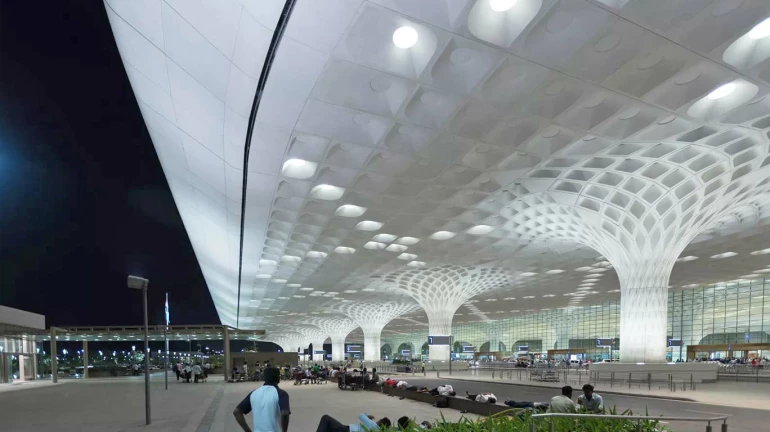
Adding another feather to its cap, Mumbai’s Chhatrapati Shivaji Maharaj International Airport (CSMIA) is proud to announce that it has achieved the Highest-Level 4+ “Transition” of Airport Carbon Accreditation (ACA) program of Airport Council International (ACI). This certification lauds Mumbai airport's efforts in building a climate change strategy which provides a comprehensive framework for managing its carbon footprint. With ‘Measure, Manage, Reduce and Communicate’ as its core objectives, it exemplifies CSMIA’s dedication and expertise in effectively managing its operations to contribute to a better tomorrow.
From a global airport standpoint, with CSMIA’s addition, there are now 31 airports in the world that have achieved this prestigious Level 4+ accreditation and only 2 airports in the whole Asia-Pacific region. And with this, it makes CSMIA the 3rd airport to achieve the esteemed certification in Asia-Pacific region. This accreditation adds to CSMIA’s milestones, as reaching Level 4+ ‘Transition’ means that the airport has aligned its CO2 management with global climate goals and compensated for the remaining residual emissions with high quality carbon credits. CSMIA has been inching towards the reduction of carbon emissions under its Environment Social and Governance (ESG) policy commitments. With continued focus on sustainability, CSMIA, year-on-year undertakes effective measures and sustainable practices, that display the airports’ firm belief & responsibility of contributing towards the global sustainability plan.
Speaking on the occasion, CSMIA’s spokesperson said – “It is indeed a matter of great honour to be achieving this key milestone in our journey towards attaining a sustainable future for CSMIA. Level 4+ certification by ACI is a reward for the collaborative & sustained efforts towards carbon management and mitigation through absolute emission reductions and stakeholder partnering towards global climate goals. This achievement signifies CSMIA’s commitment to being a green airport that creates sustainable value for its stakeholders responsibly. As CSMIA aspires to become net-zero by 2029, this landmark event further encourages us to stay committed to our efforts in building a greener space in the aviation industry.”
“We are proud of Mumbai International Airport's excellent achievement in reducing carbon emissions, setting an example for airports the region. Mumbai Airport is firmly positioning itself as one of the leaders in efficient carbon management and this achievement truly demonstrates its firm commitment to invest in a more sustainable future. It is a remarkable achievement in an era of unprecedented challenges for the aviation industry,” said Stefano Baronci, Director General, ACI Asia-Pacific.
In line with its vision, CSMIA had prepared a roadmap to achieve Green House Gas reduction (Carbon Management)
All leading to a greener operation at CSMIA with reduced 2,92,790 CO2 carbon compared to base year of FY 14-15. And according to US EPA tool this saving is equivalent to below
Resource | Quantity | Measurement |
Diesel consumed | 98768237.47 | Litres |
Coal burned | 133301023.5 | Kilogram |
Number of smartphones charged | 32,310,063,850 | Numbers |
Tree seedlings grown for 10 years | 4,391,960 | Numbers |
As part of its effective implementation of Carbon Management Plan, CSMMIA initiated various path-breaking projects:
Since 2012, CSMIA began its journey towards reducing carbon footprint by implementing Carbon Accounting and Management System (CAMS) based on ISO 14064-1:2018 to identify, measure & manage GHG emissions as a part of GHG management program. And since then, the airport has been a part of ACI’s ACA program and was also awarded with ACA Level 3+ “NEUTRALITY” in 2017, making CSMIA a Carbon Neutral airport since 2017. Confident in its transformational green practices, CSMIA is the only Indian airport to publish its biennial Sustainability report showcasing the progress of sustainability initiatives and presents an overview of its programs from the past two years.
For the aviation industry, two identified clear priorities that push for challenging change for a better tomorrow is (i) the shift to sustainable aviation fuel (SAF), a transition that is now seen in India (ii) and the second is the need to develop sustainable airports. At CSMIA, sustainability is an intrinsic concept, and its initiatives align with the United Nations (UN) Sustainable Development Goals and is prepared in accordance with Global Reporting Initiatives (GRI) standards, thus meeting the global environmental requirements. For CSMIA, sustainability is ingrained in its core business strategy and is an integral part for it to progressively improve the operations and continue to serve in a responsible manner.





